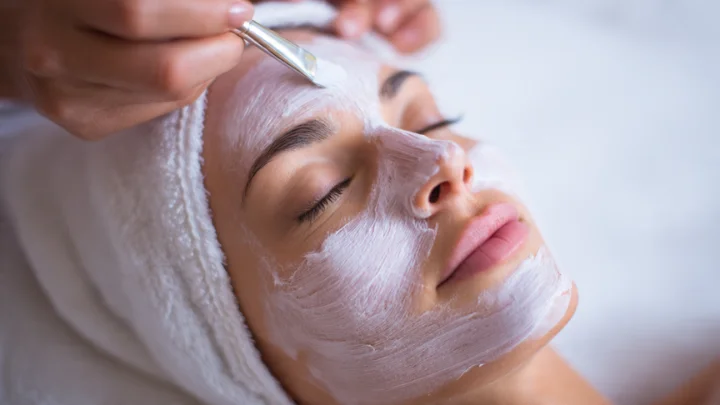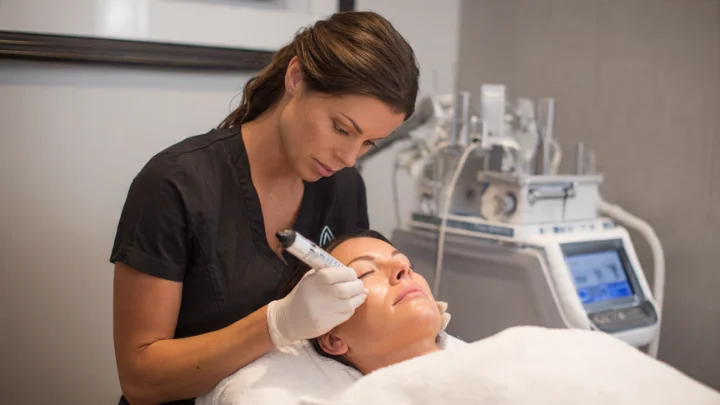Time to See a Skin Care Specialists
You see many products and tips for your skin. It can be hard to know what works. Maybe your face creams do not help, or your acne just stays. This is when professional Skin Care Specialists are needed.
These experts do more than suggest a cheap lotion. They offer real advice based on facts. They facilitate the attainment of clear skin and overall dermatological health. Judicious selection of a specialist is necessary. It leads to better skin for a long time. Furthermore, it cultivates a feeling of certainty in your abilities. Working with a good skin care specialist saves you time and money.
Knowing the Experts: Who They Are
The name “skin care specialists” covers a few licensed workers. Each one has special schooling and work rules. A comprehension of the difference is indispensable. This helps you pick the right person for your skin issue.
Dermatologists: The Skin Doctor
A dermatologist is a medical doctor. Following their undergraduate work, they embarked on four years of rigorous medical school training. Then they trained for three or four more years. They are experts in treating skin, hair, and nail problems. They are the top medical authorities for your skin.
A Dermatologist’s Core Responsibilities
Dermatologists fix both big problems and small ones. They treat severe issues like skin cancer and bad rashes. They also help with lines, spots, and sun damage. If you have a strange spot or a stubborn rash, see a dermatologist. They can do surgery, use lasers, and give shots. (Source: American Academy of Dermatology)
Estheticians: The Skin Helpers

An esthetician is a licensed worker who focuses on skin beauty. They learn how to clean skin, give facials, and do peels. They also offer body wraps and hair removal, like waxing. Their goal is to make your skin look its best. They help you keep it nice.
What Estheticians Offer
Go to an esthetician for simple care, deep cleaning, and face masks. They can suggest good items for your daily skin routine. They give treatments that make your skin look better right away. They are not medical doctors, though. They cannot check for disease or give out medicine. You get advice on skin care products from this kind of skin care specialist.
Advanced Nurses and Assistants: The Team
You might see a Nurse Practitioner (NP) or Physician Assistant (PA). They work with the doctor. They often focus on skin care too. These experts can check your skin. They can treat many skin problems. They can also give out medicine.
Picking the Right Skin Care Specialists
The best expert for you depends on your skin goals. Use this simple chart to choose.
Your Skin Checkup: What Happens
Once you pick a good skin care specialist, you need to be ready. A first visit is mainly about talking. You will share your main skin worries. The expert will ask about your current skin routine. Tell them about all the products you use now. Detail any chronic illnesses or existing health issues. This includes past rashes or bad sunburns.
Get Ready for Your Visit
Compile your questions beforehand. Make a list of all products you use. This includes soaps, makeup, and creams. Take photos of any rashes or spots. Take pictures of when they look the worst. This helps the expert see what is happening. Being ready makes the most of your time.
The Treatment Modalities and Gear
The expert might look closely at your skin. They use a bright light or a special glass. This helps them find any small problems. If you see a dermatologist, they might take a small skin piece. This is called a biopsy. They check it under a microscope for serious issues.
Estheticians use tools for deep cleaning. They might use steam to open pores. They use safe tools to remove blackheads. Common treatments include mild chemical peels. They also use microdermabrasion. This gently sands the top layer of skin. These tools help the skin look fresh and new.
The Benefit of Skin Care Specialists and Special Experts (Related term: Better Skin Plans)
General advice found online is often not enough. Celebrate the distinctiveness of your skin. It reacts in its own way. Skin care specialists know this fact. Rather than applying a universal solution, they partner with the client to engineer a distinct, tailor-made plan. This is called a better skin plan.
More Than Just General Care: Help for All Skin Types
Some people have darker skin. Others have very sensitive skin. Handling these types demands a higher level of precision. For example, certain lasers or peels can hurt dark skin. A good skin care specialist understands this risk. They choose treatments that are safe for your skin color. They know how to prevent dark spots from treatment. They give better results.
They also know the link between health and skin. Stress, diet, and sleep affect your face. The specialist might suggest lifestyle changes. This gives you help from the inside out. They help you build healthy habits. (Source: National Eczema Association recommends seeing a specialist for complex cases.)
Skin Care Specialists, Skin Professionals, and Technology

Modern skin care uses great technology. Skin care specialists are trained to use these tools. This includes different types of light therapy. It also involves radiofrequency tools. These treatments can reduce redness. They help skin look firmer. Only trained professionals know the right settings. They know how to use these machines safely. You get the best results without harm.
The Blueprint for Enduring Skin Health
Your skin changes over time. Your needs at age 20 are not the same as at age 50. Working with a skin care specialist helps. They track your skin’s health for many years. They change your plan as you age. This regimen nurtures a vibrant look and guards against damage, helping to avert more complicated skin troubles. This long view is a key reason to see a professional.
FAQs
1. Is a “beauty doctor” the same as a regular skin doctor?
The word ‘beauty doctor’ usually means a doctor who mainly does cosmetic work. Every physician undergoes an identical core curriculum. They focus on looks more than sickness.
2. How often should I see a skin care expert?
See a skin doctor once a year for a full body check. See an esthetician every 4 to 8 weeks for a facial.
3. Can an esthetician fix my bad acne?
They can help clean your skin and use helpful products. You should also see a doctor for medicine to truly fix bad acne.
4. What are some words like “skin care specialist?”
Other common words are skin doctor, esthetician, skin expert, and dermatologist.
5. Are medicine creams better than store-bought ones?
Medicine creams are stronger and work better. They must secure a doctor’s formal consent. Store items are gentler for daily use.
Summary: Skin Care Specialists Care for Your Skin
Finding the right skin care specialists is smart. It helps your health and your look. Learn the jobs of the doctors and estheticians. This makes sure you get the best advice for your specific issue. Do not guess what your skin needs. Work with an expert to get a better skin plan.
Want clearer skin? Take the next step and call a certified skin doctor or a licensed esthetician today. Start your path to healthy, glowing skin now.

I’m Salman Khayam, the founder and editor at Wellbeing Junctions. With a passion for thoughtful writing and research-based content, I share ideas and insights that inspire curiosity, growth, and a positive outlook on life. Each piece is crafted to inform, uplift, and earn the trust of readers through honesty and quality.

